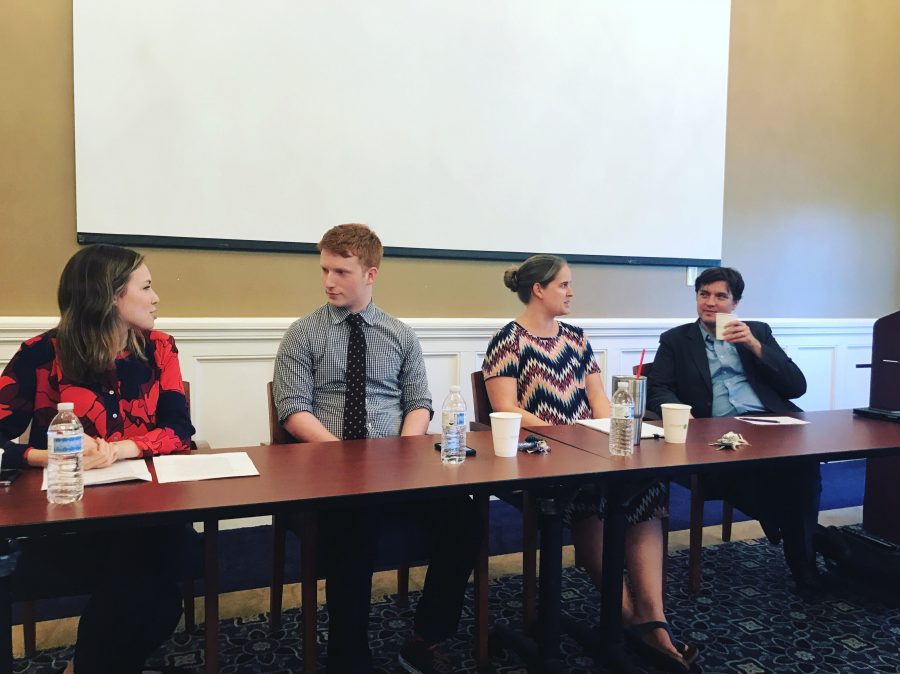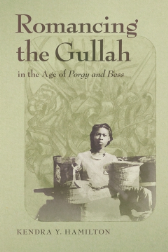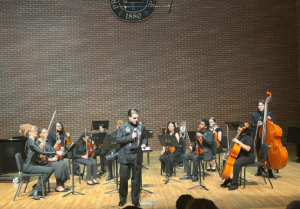Panel Takes on Fake News and Media Ethics
Panelists from left to right: Olivia Aldridge, Cooper McKim, Dr. Sarah Burns, and Dr. Brandon Inabinet.
April 12, 2017
Anyone who follows current events has heard of it: “fake news.” Its definition is hard to nail down. Is it intentionally false information, is it poorly executed journalism or is it simply a title used to discredit news sources one disagrees with? The BlueStocking Newspaper, with help from the Russell Program and Presbyterian College’s English Department, hosted a “Media Literacy in the Age of Fake News” panel to help students make their way through these murky waters.
The panelists included PC senior Olivia Aldridge, the BlueStocking’s Editor-in-Chief, Cooper McKim from public radio, Dr. Sarah Burns, a PC psychology professor, and Dr. Brandon Inabinet, a Furman University professor of communications. Each panelist offered anecdotes and viewpoints on fake news and how it impacts our society.
McKim particularly discussed the threat fake news can have on public radio. Many politicians have started calling any news stories that paints them in a poor light “fake.” President Trump has done so many times, such as when he pointedly said, “You are fake news,” to CNN’s Jim Acosta during a press conference. By drumming up mistrust in the news organizations, it makes it easier for politicians to argue for cutting funding to public radio, which already runs on a tiny budget, McKim argued.
Dr. Burns discussed the psychological aspects of fake news. There are two kinds of declarative human memories: episodic and semantic. Episodic memories are of actual events, like a teacher telling you the capital of Tennessee is Nashville. Semantic memories are simply of facts, such as you knowing Nashville is Tennessee’s capital. However, semantic memories tend to last much longer than episodic memories, Dr. Burns explained. This results in people repeating things they’ve heard, but being unable to remember the source they heard it from or the context in which they heard it. Therefore, fake news can be dangerously subtle. People can unwittingly spread misinformation because they forgot that they actually read it from a disreputable source.
Furman’s Dr. Inabinet argued that in order to combat fake news, organizations need to stop trying so hard to be purely objective, and instead strive to be credible. “Objective” and “unbiased” news is a 20th century invention, Dr. Inabinet explained. In the past, newspapers were strongly partisan and were often owned by political parties. People need to be able to trust their news sources to be truthful and responsible, because it is impossible to totally eliminate bias.
The best way for individuals to combat fake news, though, is simply to use Google, Aldridge said. A little research can instantly reveal hoaxes, myths and over exaggerations. Sometimes, fake news is that easy to disprove; Aldridge brought up the story of Cameron Harris, a Davidson College graduate. Unemployed and in need of money, Harris sat down at his kitchen table one night and wrote a totally fabricated story about the Clinton campaign committing voter fraud. It was shared over 6 million times on social media, when a quick Google fact-check by readers would have easily proved it was bad information.
And how does one tell a friend or family member they’re spreading fake news? It’s a touchy subject for most people. Dr. Burns told the story of a time she tried to inform a Facebook friend he was sharing a fake news story. They’re no longer friends, she said. Dr. Inabinet suggested that it’s better to ask the person to discuss the fake news story rather than try to correct them. Asking them where they heard it from and what other information there is on the topic is better than telling someone they have false information. That tends to make people defensive, and less likely to listen.
Regardless of how you stay up-to-date, whether it’s from a newspaper, TV or smartphone, “fake news” is a problem. Yet anyone can take steps to prevent accidentally spreading a fake news story. Sometimes, all it takes is a single Google search






